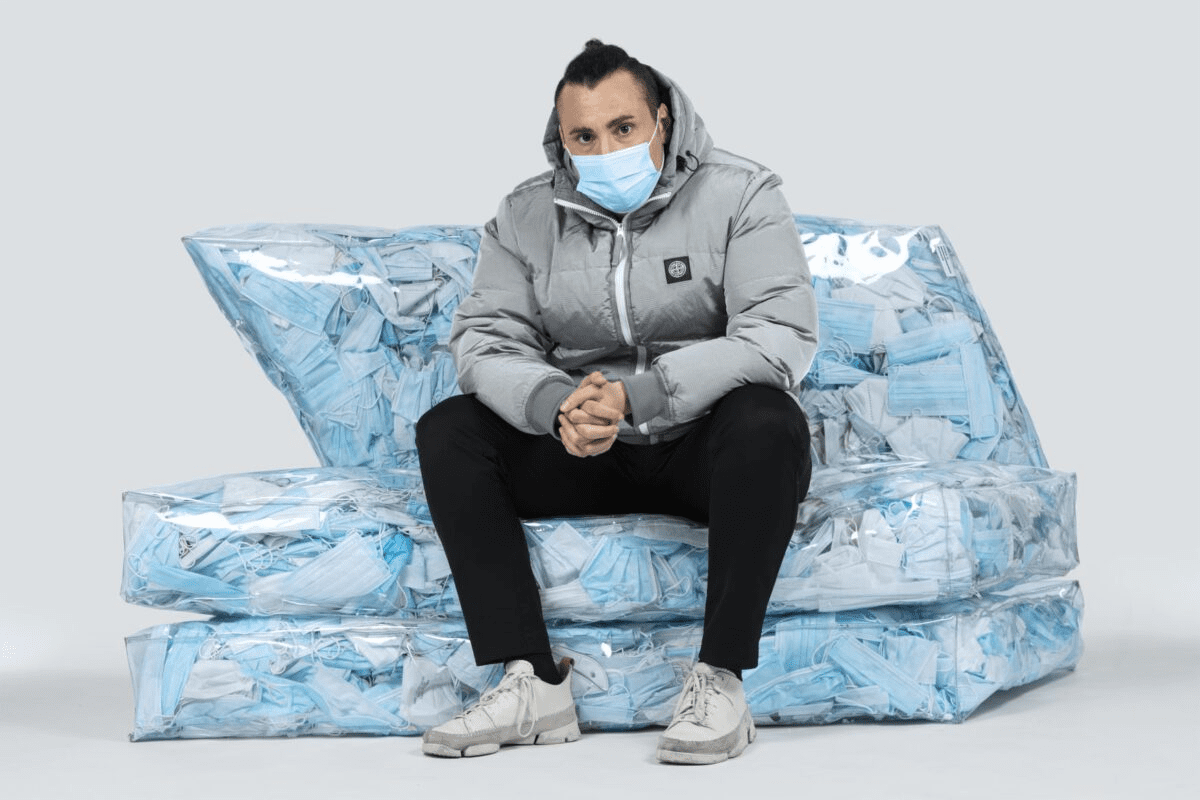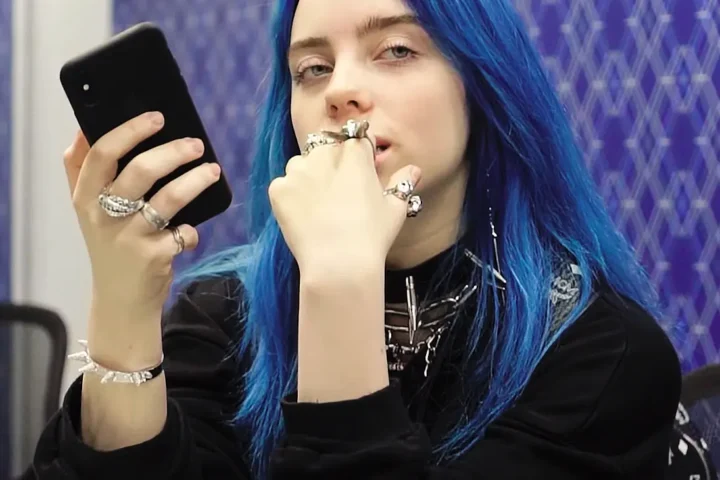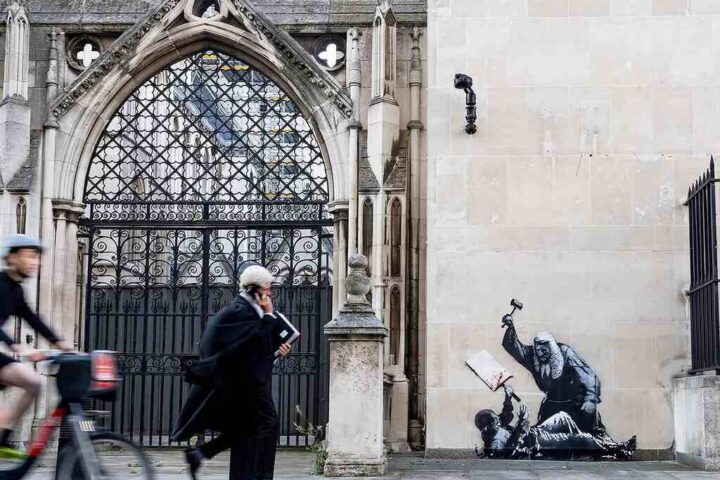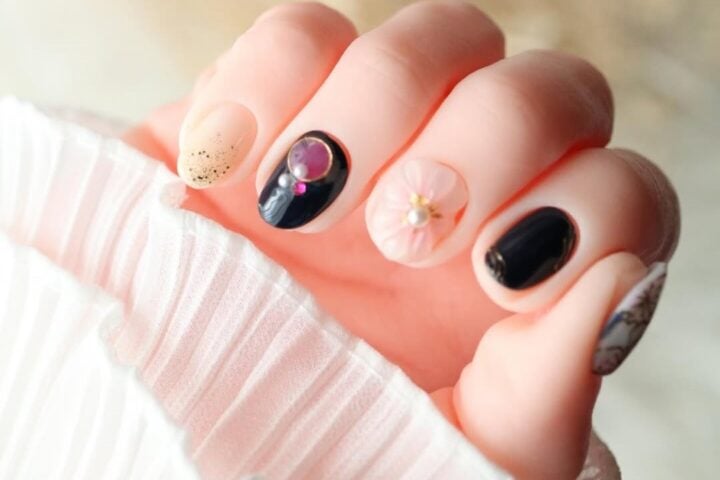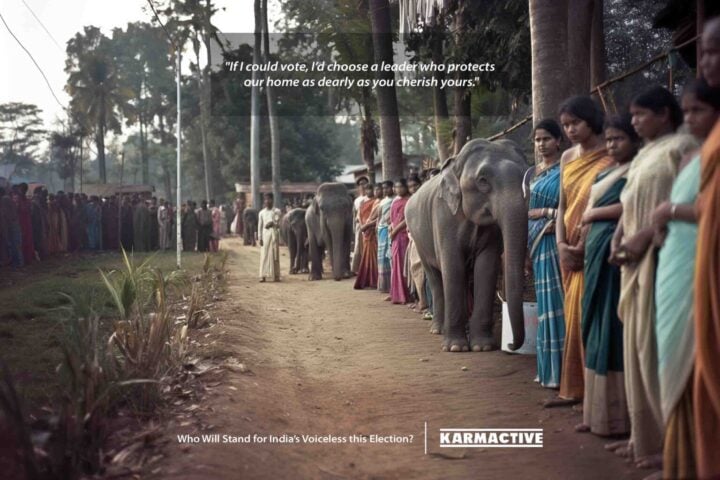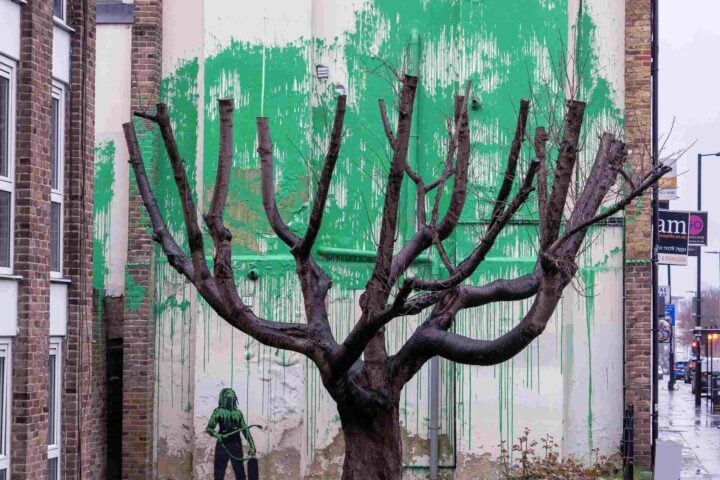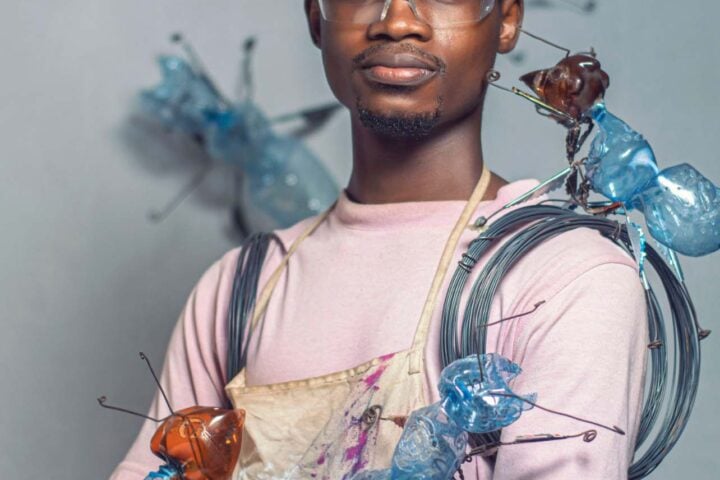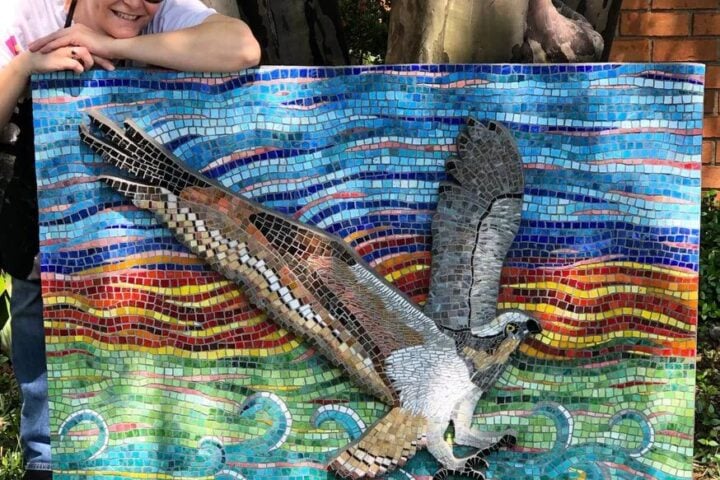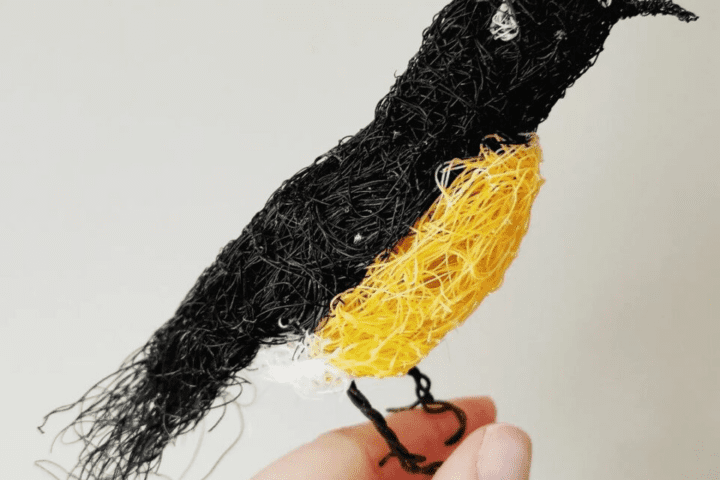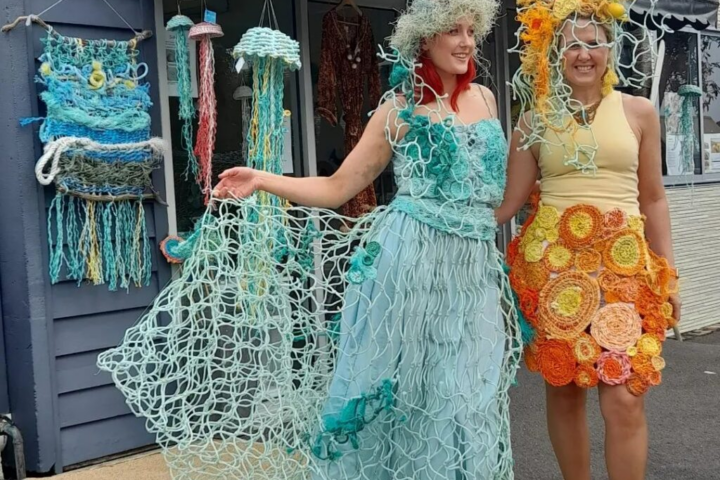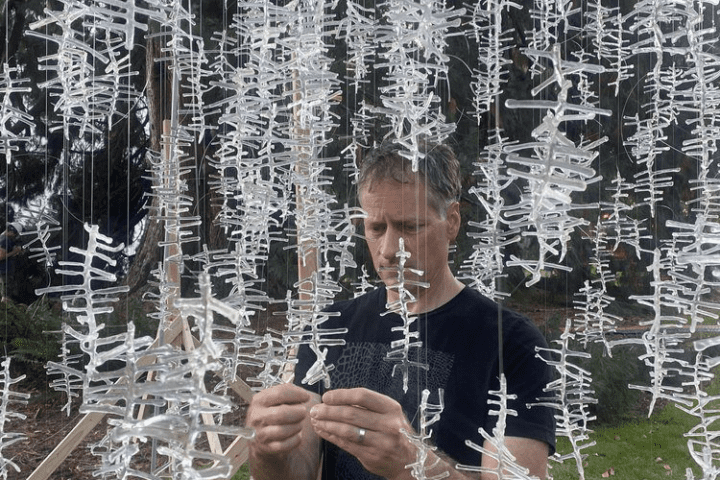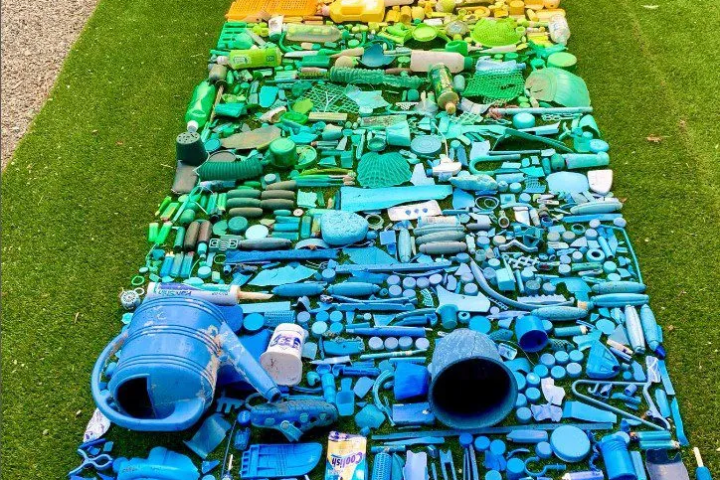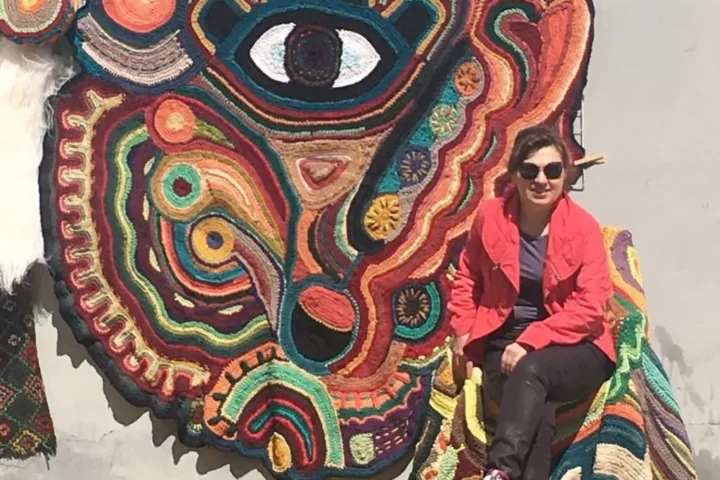To highlight the amount of plastic waste generated due to the Covid-19 pandemic, Italian designer Tobia Zambotti repurposed discarded single-use masks as the stuffing for a sofa known as Couch-19.
The Couch-19 is a direct reference to Covid-19, and the design is packed with personal protective equipment (PPE) donated by inhabitants of Pergine Valsugana at Zambotti’s birthplace in northern Italy. Tobia Zambotti (Italy-1990) is a designer living in Reykjavik who works at the crossroads of interior design, product design, and conceptual art. Tobia traveled to Shanghai to work with Alberto Caiola Studio, an award-winning interior design firm, after receiving his B.A in Architecture from IUAV (Venice) and M.A. in Interior Design from Politecnico di Milano (Milan).
Tobia decided to leave the busy Chinese city at the beginning of 2019 for an opposite lifestyle in Reykjavik (Iceland), where he began working as a freelance designer. Tobia’s projects received extensive media recognition from major magazines worldwide, including Frame, Dezeen, Interior Design, Forbes, Elle Decor, Designboom, and many more.
Face coverings are required in public places almost everywhere in the globe to help prevent the transmission of coronavirus. Most face masks on the market are comprised of layers of plastic and are intended to be used only once. Because medical waste cannot be processed through traditional recycling facilities, they are usually burnt, emitting poisonous gases that contribute to climate change. In other circumstances, they are not properly disposed of and end up fouling our streets.
The light blue masks are wrapped in translucent PVC to mimic the tip of an iceberg, a tribute to the reality that the 10,000 face covers used to make the sofa are only a fraction of the 129 billion that have been discarded globally each a month since the pandemic began. Estimates predict that over 75% of these will wind up in the trash or float in our rivers, where they will degrade into microplastics and be consumed by marine life over the course of 450 years. “We are confronting a pandemic of simple, low-cost, single-use plastic solutions like masks, gloves, and face shields, despite the fact that there are wonderful sustainable alternatives and we all know how vital it is to utilize them” Zambotti claimed. He further added, “My goal with this initiative was to change something that is considered trash into something valuable.”
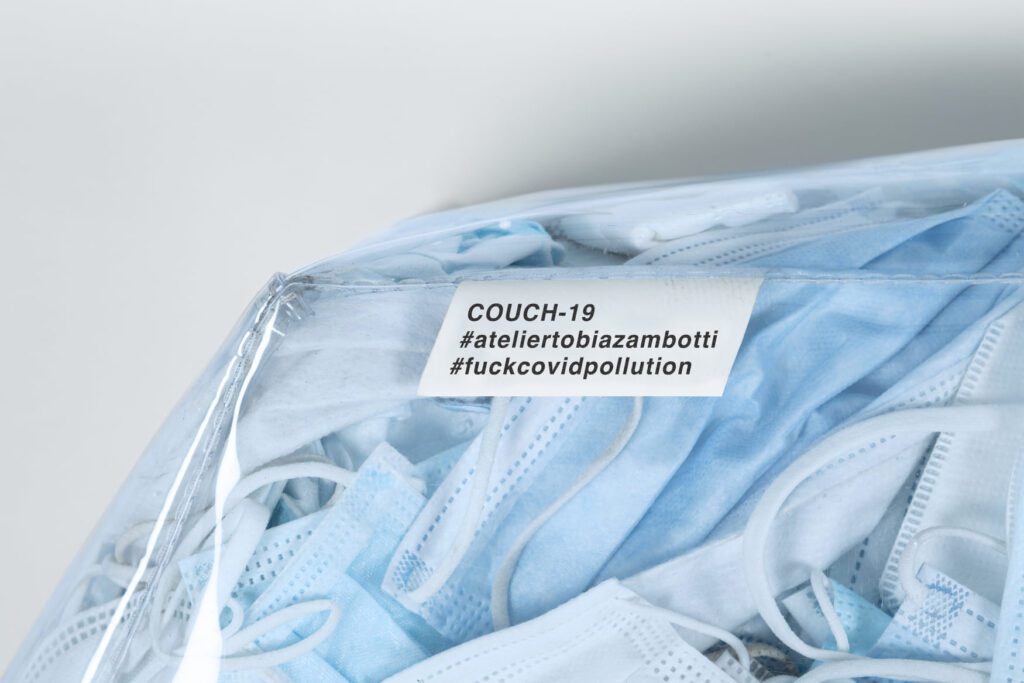




Despite the fact that coronavirus particles can only survive on masks for about seven days, Zambotti kept them in sealed plastic bags for a month to guarantee that no microbe is still active to infect. They were also sprayed with ozone, which has been proven to kill viruses like the one that causes Covid-19. The masks were compressed into four modular, PVC-covered parts that can be assembled to create a variety of seating configurations ranging from a standard sofa to a chaise lounge. “The material had to be strong, transparent, and & ‘icy,’” noted Zambotti. He also said, “the transparent crystal PVC I chose is 100 per cent recyclable.”
Environmentalists all around the world have begun to question the the usefulness of recycling in combating plastic pollution, citing studies that show that while 400 million tonnes of the material are thrown away each year, only 9% of this is recycled. Because most plastic is generated from fossil fuels, its extraction and processing generates significant carbon emissions, whether recycled or not. As a result, several designers have shifted their efforts to upgrading reusable face masks, such as outfitting them with integrated air purifiers and sound systems or embellishing them with chains and tassels to make them feel more desirable items.
